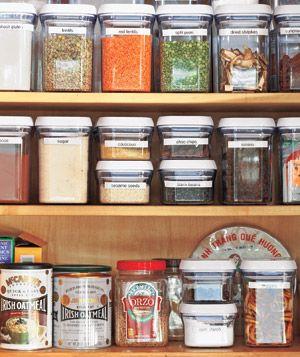An Introduction to GORD & Acid Reflux Treatment
Acid reflux, a common gastrointestinal issue that clients come to me for, affects millions globally. Characterised by the uncomfortable sensation of stomach contents flowing back into the oesophagus, it not only causes discomfort but can also lead to more severe conditions like Gastroesophageal Reflux Disease (GORD). This blog post delves into the underlying mechanisms of acid reflux, explores its root causes, and highlights natural treatment strategies, culminating in an introduction to my comprehensive Gut Fix program designed to restore digestive health.
What is Acid Reflux?
At its core, acid reflux occurs when the oesophageal valve system, which normally prevents the back-flow of stomach contents, fails. This results in symptoms like heartburn, regurgitation of food, nausea, bloating, and upper abdominal discomfort. Understanding the distinction between acid reflux, its chronic form GORD/GERD, and heartburn as a symptom is crucial for effective treatment.
This failure of the oesophageal valve system not only leads to the classic symptoms but can also manifest as a persistent burning feeling in the chest and chronic cough, especially after eating or at night. These symptoms are more than mere discomforts; they signal that the body's natural digestive barrier isn't functioning as it should. Recognising these less obvious signs of acid reflux and GORD is vital in seeking timely and effective treatment, ensuring that the condition is managed before it progresses to more severe complications
The Oesophageal Valve System: A Critical Player
The oesophageal valve system, comprising the lower esophageal sphincter (LES), diaphragm, and other structural components, acts as a gatekeeper. Its dysfunction is often at the heart of gastroesophageal reflux disease. Notably, contrary to popular belief, low stomach acid rather than high acid levels frequently impairs this system. This revelation shifts the focus from merely suppressing gastric acid to restoring its optimal levels and functionality.
Stomach Acid: More than Just Digestion
Gastric acid, primarily hydrochloric acid (HCL), is essential for digestion and immune defense. It aids in breaking down food and neutralising harmful pathogens. Insufficient gastric acid can lead to incomplete digestion, setting the stage for GORD/GERD symptoms and other digestive issues like SIBO.
It's essential to avoid self-prescribing betaine HCL to boost gastric acid if H.pylori is present or when taking anti inflammatory painkillers, as this can exacerbate existing conditions and symptoms. Always seek advice from a health professional when dealing with acid reflux treatment
Root Causes of Acid Reflux and GORD
The primary culprits of acid reflux include an impaired oesophageal valve system and increased intra-abdominal pressure. Factors contributing to low stomach acid, the root cause in many cases, encompass Helicobacter pylori infection, aging, chronic stress, nutrient deficiencies, and certain medications. Other contributing factors like obesity, drinking alcohol, specific medications, and conditions such as hiatal hernia can exacerbate reflux symptoms.
Low Stomach Acid: The Hidden Culprit
The role of low stomach acid in acid reflux is often underestimated. It weakens the oesophageal valve system and contributes to increased intra-abdominal pressure through gas production from undigested food and sometimes SIBO. Another factor contributing to low gastric acid can be the prolonged use of proton pump inhibitors (PPIs), which, while reducing acid production, can have side effects impacting overall digestive health. Addressing these overlooked aspects, including the judicious use of PPIs and their potential side effects, is pivotal in treating GORD/GERD symptoms effectively and ensuring a balanced approach to gut health.
The Impact of Overeating on Acid Reflux Symptoms
Testing: The First Step Towards Recovery
Identifying the specific underlying causes is essential. This involves assessing stomach acid levels, screening for H.pylori and other gastrointestinal pathogens using stool analysis, and testing for Small Intestinal Bacterial Overgrowth (SIBO). Such comprehensive testing paves the way for targeted treatment strategies.
Over the counter medications
In addressing acid reflux, it's important to consider the role of over-the-counter medications, which many people turn to for quick relief. While these medications can alleviate the burning sensation associated with acid reflux, they may not address the underlying causes. Over-reliance on such medications without exploring the root issues can lead to a cycle of temporary relief without long-term solutions. It's essential to understand the triggers and lifestyle factors contributing to acid reflux to develop a more effective and holistic management plan.
Natural Treatment To Manage Acid Reflux: A Holistic Approach
The cornerstone of treating acid reflux naturally involves a four-pronged approach:
- Addressing the causes of low gastric acid.
- Alleviating gas and bloating that causes intra-abdominal pressure.
- Supporting gastric acid and other digestive secretions.
- Restoring beneficial gut bacteria and the gut lining.
Dietary modifications, supplements stimulating hydrochloric acid (HCL) and other digestive secretions like enzymes or bile, and probiotics play a significant role in this process. Key dietary approaches I frequently use include elimination diets such as low FODMAP, low histamine, or low carb/low processed foods, each tailored to address specific digestive sensitivities, identify common triggers and promote gut health.
Additionally, short-term relief from symptoms can be achieved through natural remedies like slippery elm, DGL liquorice, aloe vera juice, and other soothing gut healing powders.
The Gut Fix Program: Your Path to Digestive Wellness
The Gut Fix program is designed to holistically address the root causes of acid reflux and related digestive issues. It encompasses comprehensive testing, when indicated, to identify individual triggers, followed by personalised treatment plans. These plans focus on restoring stomach acid balance, enhancing the oesophageal valve system's functionality, improving gut microbiome health, and repairing the gut lining.
The program also includes dietary guidance, supplement recommendations, and lifestyle modifications tailored to your unique needs. With the Gut Fix program, you embark on a journey towards long-term digestive health and relief from acid reflux symptoms.
Understanding and addressing the root causes of acid reflux requires a holistic approach that goes beyond symptom management. By focusing on restoring stomach acid balance, enhancing the oesophageal valve system, and nurturing gut health, lasting relief and improved digestive wellness can be achieved.
The Gut Fix program offers a comprehensive solution, guiding you on the path to a healthier, reflux-free life.


